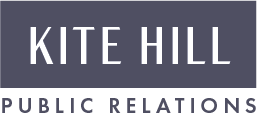The Museum of Public Relations hosts an annual event honoring Black PR history. In its 9th year, the event featured a panel discussion centering around pertinent issues faced by Black men today, particularly a lack of representation in the industry. This discussion comes at a time when the overall number of men from a variety of backgrounds in the field is reaching historic lows. As the PR community continues moving forward in the industry and creating a space that is welcoming for all, the panelists emphasized the importance of DE&I especially as efforts and commitments are beginning to dwindle. Here are key takeaways for all PR practitioners:
All communicators should recognize and create space for representation.
Fostering diversity and inclusion at decision-making tables is of paramount importance, as emphasized by industry experts during a recent panel discussion. Devon Jackson, senior account supervisor at EGAMI Group, highlighted the significance of representation in the industry. By having a diverse range of backgrounds and cultures represented, creative campaigns can more effectively reflect the diversity that exists beyond the walls of the PR industry. This representation serves as a crucial step towards creating a more inclusive and authentic industry landscape.
To achieve this, organizations must actively work towards creating environments where individuals feel safe, seen, and valued for their unique perspectives. Brandon Thomas, executive vice president at Freuds Group, underscored the critical role of diversity in mentorship. He pointed out that the lack of diversity in the industry can pose challenges for individuals entering the field, as they may struggle to find mentors and role models with whom they can relate. By fostering a diverse and inclusive mentorship program, organizations can provide aspiring professionals with the guidance and support they need to thrive.
Encouraging open dialogue, promoting inclusivity, and fostering a culture of respect are essential elements in creating a more diverse and equitable industry. Organizations can drive innovation, creativity, and meaningful change by prioritizing representation and creating spaces where individuals feel empowered to bring their authentic selves to the table.
Make the commitment across industries, to open up doors for diversity.
The power of influence can be harnessed by each of us to foster greater inclusivity within our industry. Dr. Chuck Wallington, executive vice president and chief marketing & communications officer at Cone Health, emphasized the critical need for leveraging influence and implementing tangible changes. Without such proactive efforts, we run the risk of perpetuating the same unproductive discussions year after year, with no meaningful progress made.
David W. Brown, assistant dean of community and communication at Temple University, pointed out that the lack of representation, particularly concerning black men, is not solely a problem confined to the PR industry. Rather, it affects and manifests as an issue across all industries that PR impacts. Brown's powerful statement, "Black history is US history," serves as a poignant reminder of the shared responsibility we all bear in prioritizing diversity.
In order to continue to attract talent to the PR industry — there must be a commitment to making PR more diverse and creating an environment where individuals feel safe and valued. Encouraging open dialogue, inclusivity, and respect are essential elements in fostering a more diverse and equitable industry. The lack of representation is not limited to the PR industry alone but affects all industries. Creating diverse workplaces is a shared responsibility that contributes to a more inclusive and authentic industry.
- Kyle Murray, Senior Account Supervisor

